

As a retail store owner, you must provide a set of legal policies that explain important details about your business, such as your practices and conventions, the types of information you collect about customers and how you plan to use it, as well as customers' rights and available choices.
There are certain legal considerations you must address to protect your business from liability and promote transparency with your customers, and legal policies are the best way to do this.
In this article, we'll go over the various policies a retail store must maintain to fulfill its legal obligations and deliver a hassle-free shopping experience to customers. We'll also look at where you can display these policies to ensure that customers don't miss them.
TermsFeed is the world's leading generator of legal agreements for websites and apps. With TermsFeed, you can generate:
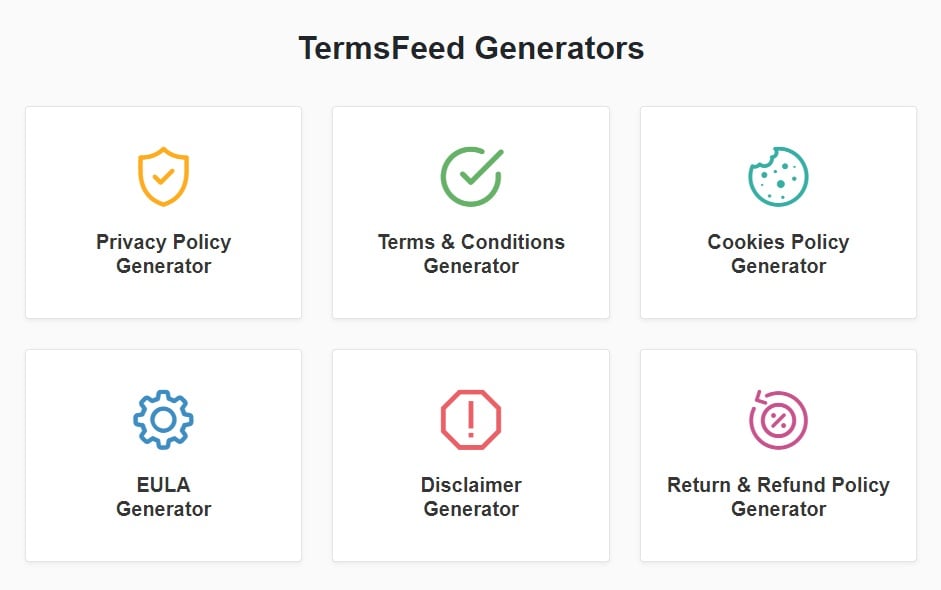
Although the world of trade today is becoming increasingly virtual thanks to ecommerce, brick-and-mortar retail stores continue to hold their own in the global economy.
According to a HubSpot study of the top shopping trends for 2022, 73% of customers prefer to purchase their products in-store rather than online. In essence, even though ecommerce adds a lot of convenience to the shopping experience, physical retail stores are still the preferred option for quite a number of shoppers.
However, in this age of convenience and rising internet penetration, there is no denying the importance of leveraging modern technology to enhance product offerings and serve customers better.
As a retailer, this could mean simply creating a presence on social media or, better yet, setting up a website to bring your store to the attention of the online community.
Now, you don't necessarily have to develop an ecommerce platform for your retail store. However, you should have a website to disclose vital information about your business to customers. Importantly, your website would also be the ideal location to display your various legal policies, which we'll discuss next.

In today's privacy-first world, virtually every business must provide several legal policies to explain key information about the business to customers.
While some of these policies are explicitly mandated by many privacy laws, others are necessary (though not legally required) to promote transparency, limit liability, and foster a relationship of trust and respect with customers.
Whether you run a physical retail store, an ecommerce website, or a mix of both, you need to maintain the following legal policies:
If your retail business uses an ecommerce model, you may also consider having a Shipping Policy.
Now, let's look at the policies for retail stores in more detail.
 Privacy Policy for Retail Stores" width="1000" height="200" />
Privacy Policy for Retail Stores" width="1000" height="200" />
A Privacy Policy (also known as a Privacy Notice or Privacy Statement) is a legal agreement that summarizes how a business collects, manages, and discloses its customers' personal information.
Various privacy laws define personal information differently, but it generally refers to any information that can be used "to identify a natural person." Typical examples include but aren't limited to names, email addresses, phone numbers, credit or debit card information, social media handles, and social security numbers.
As a retail store owner, you may collect personal information through different means, such as via online surveys, website cookies, social media interactions, or simply by asking customers for their data directly.
You may then use this information to predict customer preferences and cater to their needs accordingly. For instance, you could obtain email addresses to send advertisements or marketing emails to customers.
In any case, your Privacy Policy should accurately describe your methods for collecting and using data in simple, understandable terms.
Privacy Policies are legally mandated under many privacy laws. If your retail store or ecommerce website collects personal information, you'll need to provide a Privacy Policy, or you risk facing legal actions and hefty fines.
Moreover, having a comprehensive Privacy Policy demonstrates your respect for customer privacy, as well as your value for transparency in how you collect and use personal information. This will ultimately play a significant role in building a solid reputation for your business.
To ensure compliance with global privacy laws and to keep customers sufficiently informed about your data processing practices, your retail Privacy Policy must (at least) address the following clauses:
Here's an example of how Amazon presents these clauses at the beginning of its Privacy Notice before addressing the actual details later on:
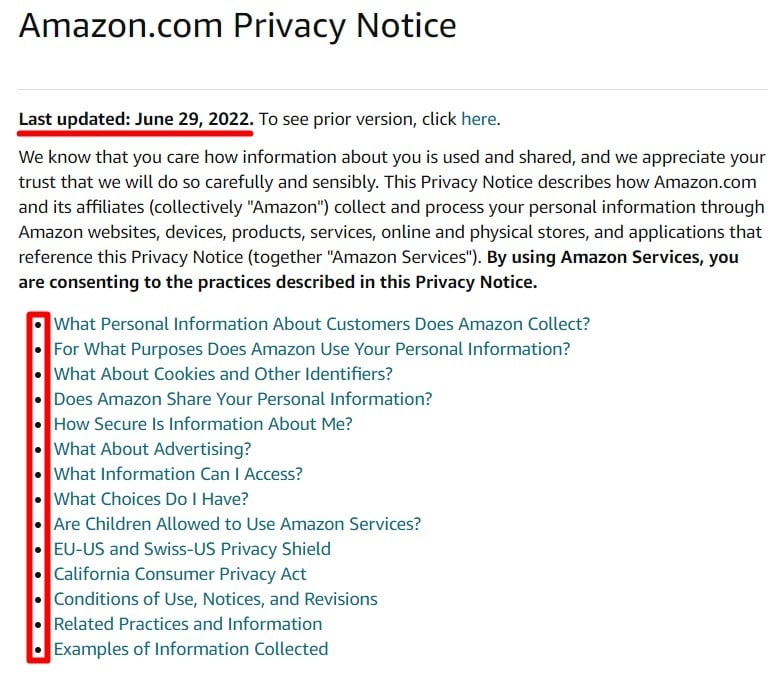
Kmart also outlines the required list of information at the beginning of its Privacy Policy, as shown below:
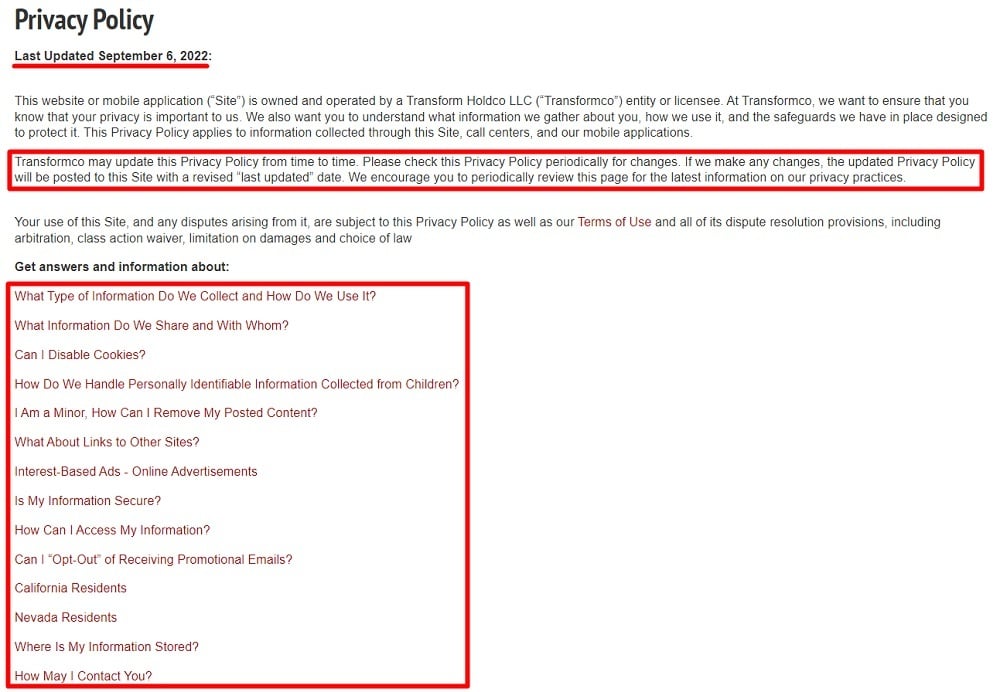
A Privacy Policy is the most important policy you should have for your retail store since it's legally required, but the other legal policies are also exceptionally important. Let's look at the rest.

A Terms and Conditions agreement (also known as a Terms of Use or Terms of Service agreement) is a legal document outlining the rules that govern a business's contractual relationship with its customers. It clarifies what each party must do to ensure a hassle-free flow of operations.
As a retailer, a Terms and Conditions agreement helps you protect your business and set clear expectations for your customers. In other words, it explains what customers can expect from your business when they purchase products and what you expect from them in return.
Unlike a Privacy Policy, a Terms and Conditions agreement is not legally required of your retail store. However, it's essential to give you control over your business and an edge in the event of a legal dispute.
More specifically, having a Terms and Conditions agreement can help you:
To protect your store from legal issues, you'll need to (at least) include the following clauses in your Terms and Conditions agreement:
For example, Kohl's outlines the above information at the start of its Terms and Conditions agreement and immediately lets customers know that by purchasing from its stores and using its website, customers agree to be bound by its terms:
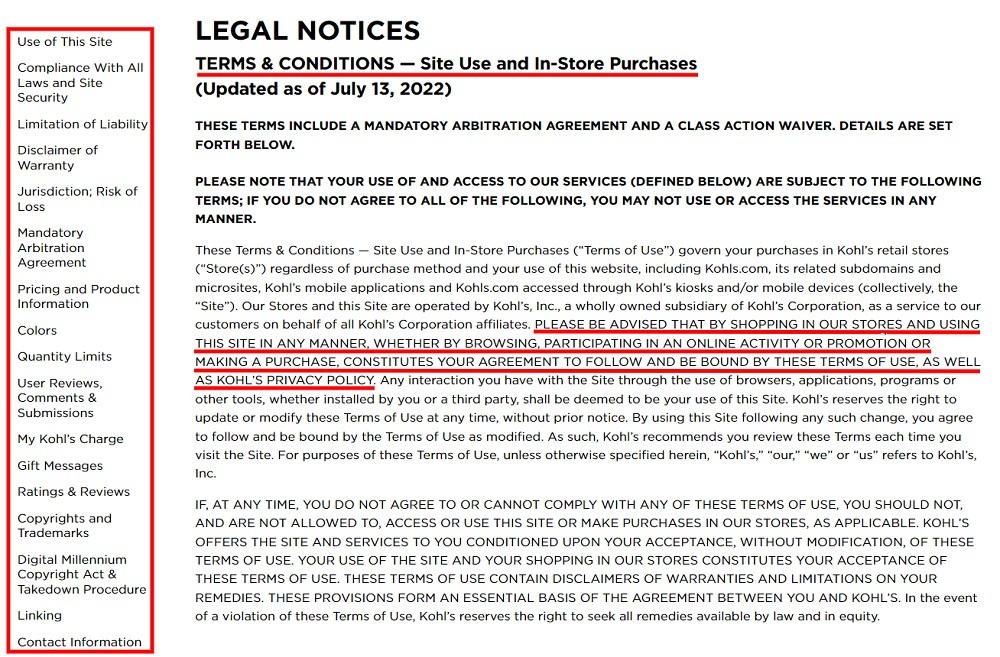
While not legally required, you can see how having a Terms and Conditions is crucially important for your retail store.

A Return and Refund Policy is an agreement that explains how your business will handle product returns and under which conditions you may provide refunds.
This policy is a big deal for customers. It is the most important agreement your store or website must maintain to avoid disputes that hurt your relationship with customers.
While you ultimately determine the terms of your Return and Refund Policy, you should ensure that your terms are fair and meet the legal standards of the jurisdiction in which you operate.
For example, businesses are not legally required to provide a Return and Refund Policy under U.S. laws. However, some states require businesses that maintain this policy to prominently display it in key locations around their store and website.
Therefore, it's important that you first find out which return and refund laws apply to your business before you draft your policy.
The content of a Return and Refund Policy varies depending on the practices of a business. Unlike the previous policies we've identified above, a Return and Refund Policy doesn't need to address many areas.
You merely need to answer a few key questions, such as:
In addition, it's a best practice to ensure that your Return and Refund Policy is written in simple, concise, and straightforward language.
The Home Depot, for instance, answers the above questions in its Return Policy, including how customers can return products to a store branch or online. Here's an excerpt:

Macy's also clearly and concisely addresses the necessary information in its Return Policy:
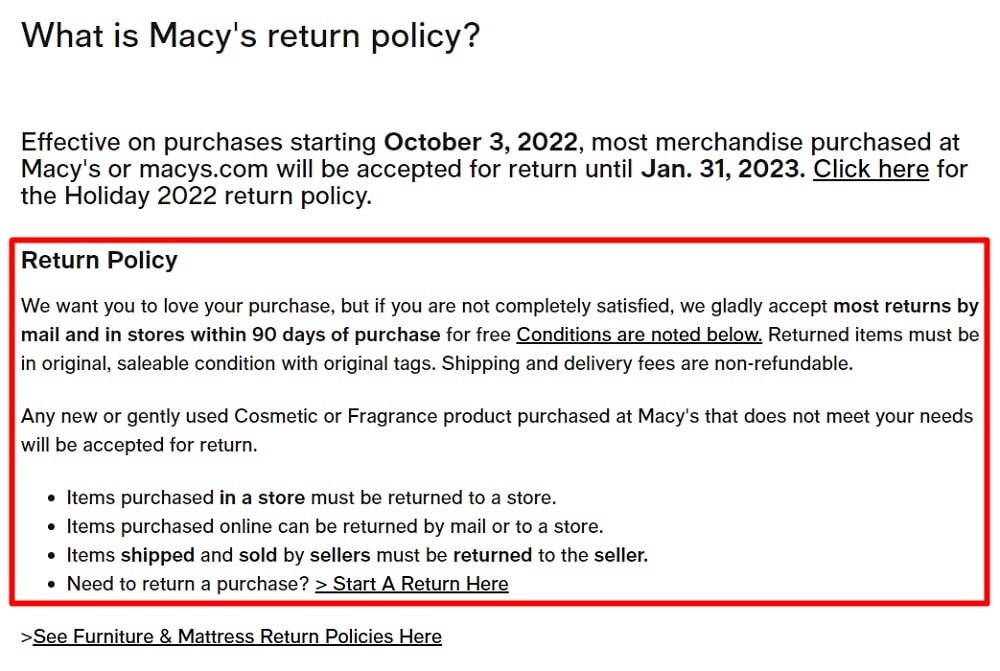
Make sure to include as much detail as possible in your Return and Refund Policy to help avoid confusion or upset with your customers.

A disclaimer is a statement that tells users that a business will not be held responsible for certain defects, errors, and damages that arise from using its services.
As a retailer, a disclaimer can be very useful for limiting your store's liability to customers. It provides an additional layer of protection by alerting customers of the risks involved in making certain purchases.
While a disclaimer can undoubtedly reduce your legal exposure, it's not a foolproof solution.
There are various types of disclaimers, such as third-party disclaimers, "As Is" disclaimers, and affiliate disclaimers, to mention a few. In other words, whichever kind of disclaimer you choose to implement will depend on your specific business needs.
Businesses typically include disclaimers in a section of their Terms and Conditions agreement like 7-Eleven does here:
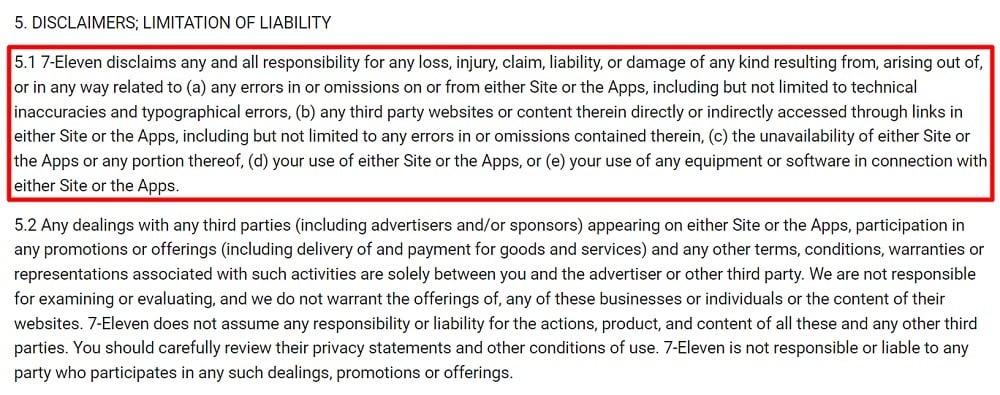
Similarly, McDonald's provides an "As Is" and a third-party disclaimer within its Terms and Conditions agreement as shown below:

Now that we've identified the policies your retail store must maintain, let's briefly look at where you can display these policies.

It's not enough to draft clear and transparent legal policies for your retail store. You also need to place these policies in conspicuous locations where your customers can easily access them.
For brick-and-mortar retail stores, the easiest way to accomplish this is to set up a website to host your various legal policies and refer customers to this website.
The most prominent places to display your legal policies within your website are as follows:
Let's see some examples:
Here's how 7-Eleven links its Terms and Conditions agreement and Privacy Policy in its website footer:

Gap also links its comprehensive Return Policy on its website footer, as we can see below:
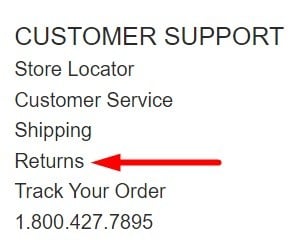 Gap website footer with returns link highlighted" width="307" height="249" />
Gap website footer with returns link highlighted" width="307" height="249" />
Office Depot provides links to its Terms of Use, Privacy Statement, and Return Policy alongside other agreements at the bottom of its sign-up page:

Licensed Medical Health Counselor provides a disclaimer in its website header menu as shown below:

It's a best practice to make your legal policies as visible as possible, even outside your website. Where possible, you should post these policies in conspicuous places like by the register, on receipts, on social media pages, in emails you send to customers, and so on.
Despite the massive shift toward ecommerce in today's business world, physical retail stores remain a timeless classic for many shoppers.
Whether you run a physical retail store, an ecommerce website, or a combination of both, you must provide several policies to stay compliant with legal requirements and ensure a smooth flow of operations for your business.
In summary, these policies are as follows:
Remember to place these policies in conspicuous places where customers will easily come across them (both on and off your website). Typical locations include but aren't limited to your website footer, sign-up forms, receipts, and emails sent to customers.
Comply with the law with our agreements, policies, and consent banners. Everything is included.
Disclaimer
This article is not a substitute for professional legal advice. This article does not create an attorney-client relationship, nor is it a solicitation to offer legal advice.
Last updated on
Appears in
Related articles
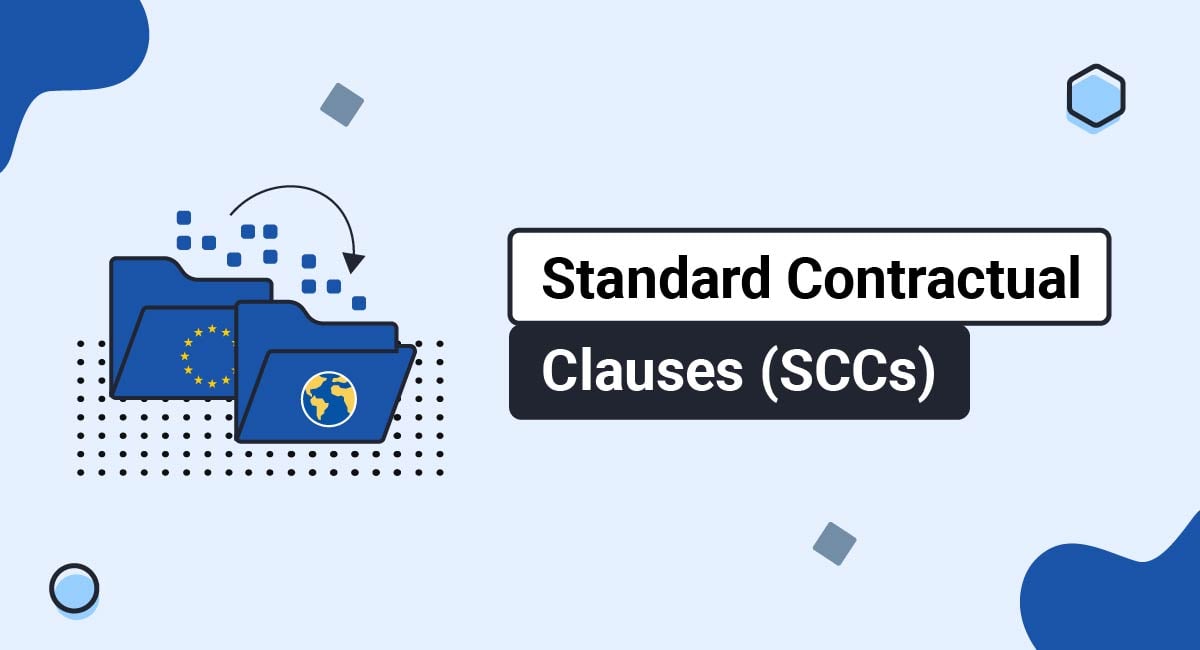
On June 4, 2021, the European Commission released updated EU standard contractual clauses (SCCs) to ensure the lawful transfer of personal data to countries outside the European Economic Area (aka third countries). The old SCCs pre-dated the EU General Data Protection Regulation (GDPR) and, as such, do not reflect its stringent.
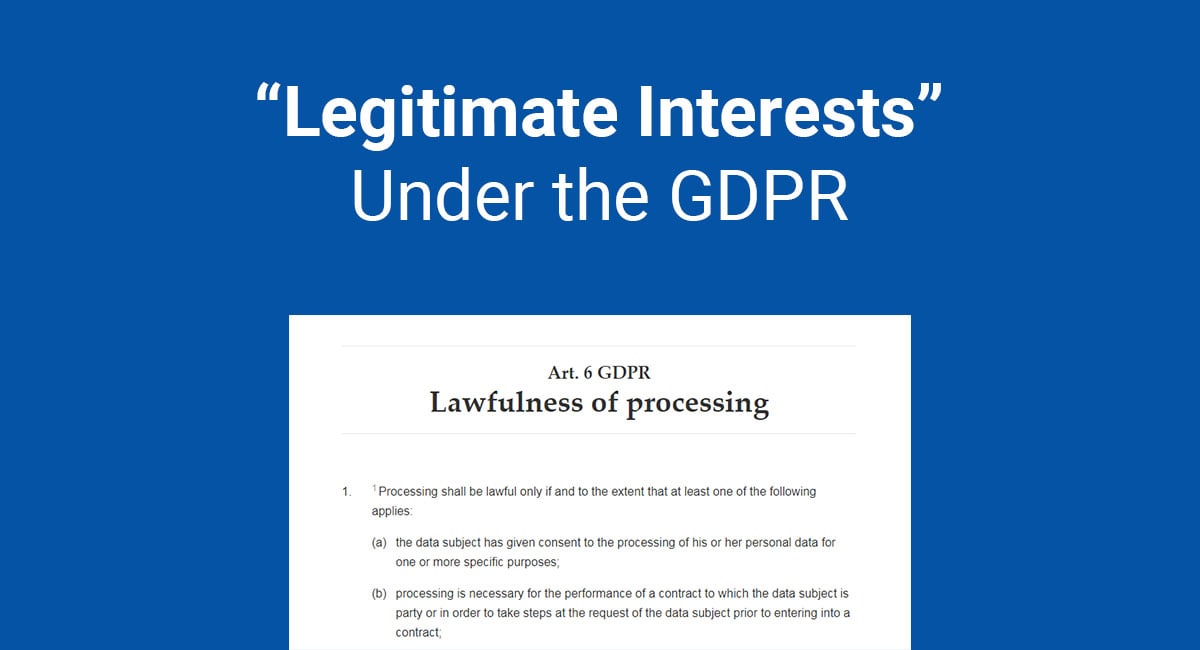
One of the most ambiguous and controversial components of the GDPR to date is the term "legitimate interests," particularly in Article 6. In this article we will delve into the sections of the GDPR that use the phrase "legitimate interests" and determine what this phrase means and how it affects.
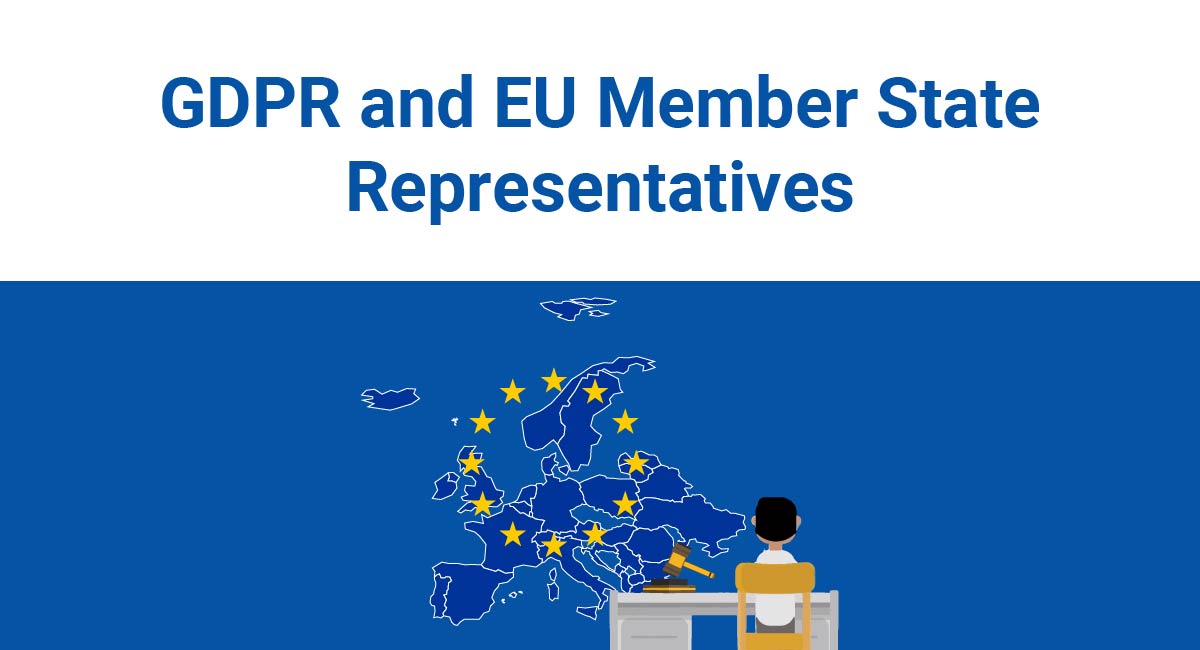
Article 27 of the GDPR discusses the need for some companies outside of the EU to appoint a Member State Representative within the EU to serve as a point of communication for ensuring your company's compliance with the GDPR. Presumably, this is to make communication less of a burden for authorities.
Comply with the law with our agreements, policies, tools and cookie consent banners. Everything you need is included.
Disclaimer: Legal information is not legal advice, read the disclaimer. The information provided on this site is not legal advice, does not constitute a lawyer referral service, and no attorney-client or confidential relationship is or will be formed by use of the site.
Copyright © 2012 - 2024 TermsFeed ® . All rights reserved.